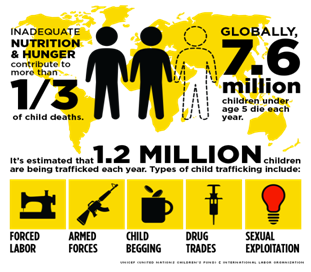Centre launched a rehab plan for Beggars
Context
‘SMILE-75 Initiative’, an initiative launched by the central government at 75 Municipal Corporations across states in the country to implement the plan for Identifying and rehabilitating the beggars and provide them employment.
Background
- According to the 2011 Census, the total population of person engaged in begging and variants is about 4.13 lakhs.
- Most of them struggle to gain access to basic needs of food, clothing and shelter, which drives them in a loop of poverty.
- West Bengal tops the chart followed by Uttar Pradesh and Bihar at number two and three respectively. Lakshadweep merely has two vagrants according to the 2011 census.
- Among the union territories, New Delhi had the largest number of beggars 2,187 followed by 121 in Chandigarh.
- Recently, the Supreme Court has agreed to examine a plea for decriminalising begging which has been made an offense in various states under Prevention of Begging Act.
About the initiative:
- To mark 75 years of Independence, union minister for social justice and empowerment has launched the scheme named ‘SMILE-75 Initiative’.
- This initiative will provide the roadmaps which involve carrying out surveys and identifying those begging and steering outreach.
- It will work to mobilize the persons and setting up "Adhikargrehs” near areas where engage in begging and connect them to education, skill development and employment opportunities.
- It will be implemented initially by 75 Municipal corporations namely, Delhi, Tirupati, Guwahati, Patna, Ahmedabad, Mumbai, Kolkata and others.
- Ministry had identified 10 cities for undertaking pilot project on Comprehensive Rehabilitation of persons engaged in the act of Begging.
- Currently, pilot project is on-going in 7 cities namely Delhi, Bangalore, Hyderabad, Indore, Lucknow, Nagpur and Patna.
SMILE scheme-‘Support for Marginalized Individuals for Livelihood and Enterprise’
- It includes a sub-scheme - ‘Central Sector Scheme’ for Comprehensive Rehabilitation of persons engaged in the act of Begging.
- The focus of the scheme is extensively on rehabilitation, provision of medical facilities, counselling, basic documentation, education, skill development, economic linkages and so on.
- Persons engaged in the act of Begging are to be covered under the scheme.
- Total funds allocated for the scheme for next five years.
- Scheme is to be implemented on pan-India basis.
- These pilots are being implemented with the support of State Governments/UTs/Local Urban Bodies and Voluntary Organizations etc.

Significance:
It provides comprehensive measures including;
- Survey and identification,
- Mobilization,
- Rehabilitation,
- Provision of medical facilities,
- Awareness generation,
- Counselling, education &skill development and
- Sustainable settlement of persons engaged in begging.
Analysis
Why people are forced to Begging?
- Physical Factors: In India there is no adequate provision for treatment and social rehabilitation of blind, deaf, dumb or the physically handicapped. In the absence of any reasonable alternative, such persons are constrained to beg.
- Economic Factors: Economic factors which generally prompt people to take to begging. Among these factors poverty, unemployment, under-employment and loss of income are important.
- Social Factors: Among the social factors, hereditary occupation, family disorganization and widowhood are causes of begging.
- Natural Calamities: Our physical environment may frustrate us drastically at times through famines, earthquakes, drought, cyclones or floods. Sometimes all these natural calamities cause serious damage to property and agriculture and compel people to leave their homes and compel them to take to begging to overcome pangs of hunger.
- Psychological Factors: Some times, due to bad psychology of the individual cause beggary Frustration, unwillingness to work and tendency towards isolation are important among these factors.
Benefits of the initiative
- Employment generation: The focus of the scheme is extensively on rehabilitation, provision of medical facilities, counselling, basic documentation, education, skill development, economic linkages and so on.
- Help to poor: It is estimated that an approximate 60,000 poorest persons would be benefited under this scheme for leading a life of dignity.
- Against the vicious cycle of poverty: Begging is one such activity which engages a person onto begging and further to poverty for ever.
|
National Backward Classes Finance & Development Corporation
|
Way Forward
- Eradicate Poverty: Priority should be given to eradication of extreme poverty as many people take to begging owing to poverty, it has become a menace. Later, begging has become part of an organised crime.
- Rehabilitation: Small shelters have to be made and they need to be imparted skills that would help them land jobs.
- Vocational Training: The government should provide necessary vocational training to rehabilitate them. The expenses incurred should be borne by the government. A government funded organisation should be constituted and personnel trained to oversee the rehabilitation programme.
- Concerted Effort: Social issues associated with begging are drug trafficking, criminal activities and sexual exploitation of children. As part of the rehabilitation programme, the corporation has collaborated with a voluntary organisation towards providing food, clothing and medicines. To reduce the economic burden, the government should seek the aid of voluntary organisations. However, the activities of the voluntary organisations should be monitored and evaluated.
- Aid Agency Needed: The rehabilitated should be provided free medical diagnosis, financial support and ration to the beggars. Slums may come up in cities and rehabilitation should be carried out in a judicious manner.
- Create Awareness: People should discourage beggars. Begging flourishes because people tend to be generous. Awareness programmes need to be conducted for the poor to help them realise how shameful it is to beg.
Conclusion
As India is a social welfare state, it is the responsibility of the government to develop policies so that all its citizens can achieve that wholesome life. India is also part of the International Covenant on Civil and Political Rights (ICCPR) which has a provision for right to living with dignity and the lack of any concrete policies to deal with the issue of beggary and homelessness is inconsistent with that provision.





